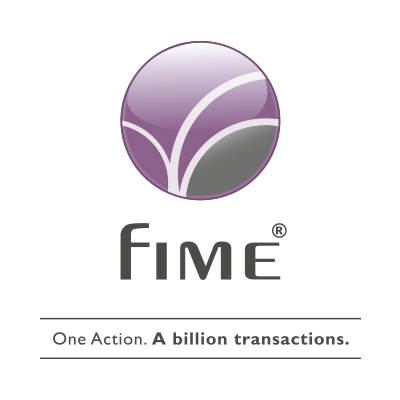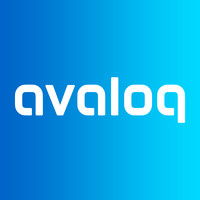Published
- 02:00 am

Salt Edge announced today that it now offers a simple solution which enables companies to get instant access to open banking channels in a compliant way, without having their own PSD2 licence.
Salt Edge Partner Program is designed for lenders, credit bureaus, finapps, that are looking to create services based on clients’ account data but that prefer to entrust to a third party the enormous efforts that come with regulatory requirements and bank integrations.
PSD2 imposes strict requirements upon companies that want to integrate with bank PSD2 channels, such as obtaining PSD2 licences, building and maintaining an entire infrastructure, getting eIDAS certificates, and much more.
Connecting to banks across the EU is challenging as well. The created PSD2 interfaces are quite diverse from bank to bank even in the same country, having different documentation, technical specifications, and the integration processes themselves differ. As a result, companies need to invest endless resources like capital, human, technology, knowledge, and time if they want to build innovative services based on open banking channels.
Via Salt Edge Partner Program, companies can start using real-time data from across all the EU, in just 15 minutes. Salt Edge handles all the technical, security, compliance matters so that companies can focus on providing services to their clients.
“We’ve done a tremendous work for building a highly secure infrastructure, developing compliant solutions, and connecting to over 400+ open banking APIs across Europe. Salt Edge strives, more than ever, to give institutions access to better technology and data so they can bring their business ideas to life for the benefit of their customers. And this is what open banking is about, infinite opportunities that empower end-customers to claim right to data and receive improved services,” commented Dmitrii Barbasura, CEO of Salt Edge.
Related News
- 07:00 am

MediConnect (the “Company”), the developer of a framework blockchain solution to trace and manage prescription medication, is pleased to announce that it has completed the workflow for the Proof-of-Concept (“PoC”) and has begun the integration of UK Meds, an online pharmacy and partner of MediConnect, to the MediConnect PoC platform.
The completed workflow is a significant step forward for MediConnect that establishes a foundation and methodology on which to finalise the PoC, which is designed to track medication through the supply chain from the point at which it is manufactured to its prescription by medical professionals and purchase by patients. The parameters established as a result of the completed workflow follows rigorous testing from developers and regular consultation with experts in the pharmaceutical industry.
The experience and knowledge gained during the workflow process will prove invaluable as the Company progresses towards completion of the PoC and a pilot scheme with up to 10 online pharmacies, including UK Meds, in 2020.
Following the completion of the PoC workflow, MediConnect has commenced the integration of UK Meds to its PoC platform. UK Meds is one of the largest and fastest growing online pharmacies in the UK with a user-base of approximately 400,000 people, issuing 1,000s of prescriptions on the UK Meds website every day. UK Meds current processes will be integrated to the MediConnect solution in one cohesive platform to trace products through its supply chain and prevent the misuse of prescription drugs.
The MediConnect blockchain is being developed by Stratis Group Ltd as a bespoke solution based on the Stratis blockchain. MediConnect has launched its own MEDI Token to handle transactions and transfer value on its platform. The ICO of the MEDI Token is currently live and concludes on 30 September 2019.
Dexter Blackstock, CEO of MediConnect, commented: “We are delighted to have completed the workflow for the proof-of-concept, an important milestone in MediConnect’s development. The next step is to complete the integration of UK Meds to our proof-of-concept platform and complete a pilot scheme in 2020. The pilot scheme will include up to 10 online pharmacies and bring to life our goal of solving the growing issue of overuse of prescription medication, which will help protect the health of patients while reducing costs for the NHS.”
Related News
- 02:00 am

FIME has joined the Berlin Group’s NextGenPSD2 Advisory Board, a pan-European technical standardization body. Additionally, FIME is participating in NISP, which supports the implementation of the NextGenPSD2 XS2A interface, as defined by Berlin Group and in compliance with PSD2. FIME’s expertise will guide the stakeholders of the group’s open banking API standard in defining and testing efficient implementation solutions.
Berlin Group NextGenPSD2 is working to define common scheme- and processor- independent standards for all payments stakeholders. NextGenPSD2 Implementation Support Program aims to simplify the path to compliance with the revised European Payments Directive. It facilitates the delivery of innovative new services.
“Input from across the industry is essential to ensure we meet implementation, regulatory and market needs,” comments Wijnand Machielse, Berlin Group. “FIME is a long-time supporter of payments standardization efforts, and has already demonstrated its API testing expertise on a number of open banking projects. Its insights will therefore be invaluable to our NextGenPSD2 efforts.”
“PSD2 is top of the agenda in European banking. And with such complex requirements, initiatives like the Berlin Group offer a simple, secure and harmonized way to achieve compliance,” comments Arnaud Crouzet, VP of Security and Consulting at FIME. “FIME is perfectly placed to support this important work, and help each player in the ecosystem to define, design, deploy and validate quality open banking API solutions.”
Related News
- 06:00 am

Tata Consultancy Services (TCS), (BSE: 532540, NSE: TCS) a leading global IT services, consulting and business solutions organization, has announced that Manchester-based Voyager Alliance Credit Union has selected TCS BaNCS™ Cloud for Core Banking as the core platform for its digital transformation. The implementation also covers its associate entity, Retail Credit Union.
The platform’s superior performance and open architecture-based core banking and digital channels will help the credit unions enable faster payments, expand their membership base, and future-proof their investments in technology.
Joe Hegarthy, Chief Executive, Voyager Alliance Credit Union, said, “We selected TCS BaNCS for its successful track record of having deployed cloud-based core banking solutions in the UK for credit unions and community banks. By taking our technology to the cloud with a future proof solution like TCS BaNCS, we aim to tap into the faster payments drive, transform our business digitally and widen our footprint.”
“TCS BaNCS Cloud for Core Banking is a secure, SaaS-based platform that provides comprehensive functionality and all the capabilities that financial institutions need to grow and transform in a Digital First, Cloud First world. Our proven rapid onboarding methodology reduces migration risk and delivers speed-to-market,” said R Vivekanand, Co-Head, TCS Financial Solutions. “We are delighted to migrate the Voyager Alliance and Retail Credit Unions on to our platform and to enable their Business 4.0™ transformation journeys.”
Leading credit unions in the UK have adopted TCS BaNCS Cloud for Core Banking to gain speed to market for new products. In India, the platform supports over 15,000 branches belonging to more than 170 small banks, processing over 100 million transactions per month.
TCS BaNCS Cloud is a plug-and-play, pay-as-you-go, one-stop suite of SaaS products and platforms catering to the end-to-end financial services value chain. It has been adopted by banks of varying sizes across the globe for its future-ready digital architecture, functionality, business agility and operational efficiency. The TCS BaNCS Cloud platforms’ proven application architecture ensures anytime, anywhere digital access, scalability, resilience, high performance, and compliance. TCS BaNCS Cloud incorporates operational procedures and infrastructure that are transparent, auditable, and compliant with stringent regulatory requirements.
TCS BaNCS’ modern, BIAN-compliant service-oriented architecture and support for open banking, has made it a critical component of banks’ Business 4.0™ transformations, enabling a digital strategy for customer engagement and participation in a rich partner ecosystem. The solution has one of the richest collections of API-enabled components addressing retail, corporate and private banking and wealth management, including digital banking for all segments. It supports industry standards such as ISO20022 and IFX. Additionally, TCS BaNCS has ready-to-use connectivity to blockchain-based applications and networks with TCS’ Quartz™ Blockchain solutions.
Related News
- 02:00 am

VERMEG, the banking and insurance software solutions specialist, announced that its state-of-the-art Securities and Custody solution “Megara” went live at Santander Securities Services Brazil (S3 Brazil) on July 2019. S3 Brazil will be serviced from VERMEG’s newly opened offices in Brazil.
VERMEG acts as a global partner for Santander Securities Services which uses VERMEG’s Megara post-trade processing software across multiple territories.
The extension of the partnership to cover Brazil makes S3 Brazil a founder client for VERMEG’s new office in Sao Paulo, which is led by General Manager, Wagner Antunes.
VERMEG was chosen for its expertise in the Securities Services space and ability to deliver an efficient and robust post-trade processing system. With a long-standing relationship with the Santander Group, this new success in Latin America is testament to the highly quality service which VERMEG provides to the bank.
Megara is a comprehensive and modular suite allowing clients to cover through a single installation various segments including wholesale, retail, foreign and domestic operations everywhere in the world, thus reducing complexity and driving down costs.
The new offices in Brazil will help Vermeg expand in the country by offering its large portfolio of products and will ensure that its client will get the best possible quality of services.
General Manager Wagner joins with a wealth of experience in financial services, having built his own company, VIXIA, a technology consultancy, and also having previously held Director positions at Ebix, IBM and DXC Technology. Wagner will be responsible for building the team and client base for VERMEG in the region.
Wagner Antunes, General Manager Brazil, VERMEG, said: I am delighted that we have been chosen by Santander to provide post-trade processing solutions in Brazil, and to build on our existing relationship with this leading global bank. This is a landmark client for our new Brazil office and is an important step in realising our ambition to grown the VERMEG presence across Latin America.
Badreddine Ouali, Chairman VERMEG said: “We are thrilled that our capabilities in financial market and securities management have been recognised by the Santander Group, which has chosen to use VERMEG as its strategic partner for post-trade processing in the region.
This is a really positive development for the new office and team in Brazil. We believe that there is a real opportunity in Latin America and we are investing in building the VERMEG offering to enable financial institutions and banks in the region to access our software products and services.
Related News
- 04:00 am

P20 has announced combating fraud and criminal transactions as the first major issue to be addressed at its global payments conference at Church House, Westminster, London on 3rd October 2019.
In the UK alone, unauthorised financial fraud losses across payment cards, remote banking and cheques totalled £844 million in 2018. In addition, over 80,000 incidents of authorised push payment scams were recorded in 2018, totalling gross losses of £354 million.
Christopher Woolard, Executive Director of Strategy at the FCA, will deliver the keynote for the conference’s fraud-focused regulation pillar, which will be followed by a panel seeking to identify the immediate actions that should be taken.
Bruce Lowthers, P20 Chairman, comments: “Financial fraud is a significant problem that will become more acute as cashless payments gain further momentum globally. The industry must respond with a strategic globally unified approach and P20 is the vehicle with which to achieve this.”
Another key focus of this year’s conference is cybersecurity. The implications of attacks and ways to defend against threats will be discussed in depth, with a keynote given by Paul Chichester MBE, Director of Operations, UK National Cyber Security Centre about the need for military precision to combat the cybersecurity threat.
Duncan Sandys, Executive Director of P20 says: “The risk of cyber-attacks keeps the leaders of the global payments industry awake at night. Cashless payments are growing globally and a systemic attack on payments infrastructure would have immediate, devastating and far-reaching consequences for governments, businesses and the public.
The industry has a responsibility to collaborate and work hand in hand with government and regulators to develop and maintain an industry wide response, protocol and plan. This is a key objective for P20.”
The overarching vision for the P20 conference is making payments accessible, affordable and secure for all. To drive forward this vision and turn it into reality, the P20 advocates a collaborative, unified approach, bringing together business leaders, government officials and regulators from across the global payments industry to agree on and implement change.
This year’s conference attracts a host of high-profile speakers. Among those confirmed to speak this year are Lord Digby Jones, Former UK Trade and Investment Minister, Carlos Menendez, President, Enterprise Partnerships, Mastercard, Natalie Ceeney CBE, Chair of Innovate Finance, John Glen MP, Economic Secretary to HM Treasury & UK City Minister and Alastair Lukies CBE, Chairman of UK Fintech Alliance and CEO Pollinate.
Related News
- 01:00 am

Signicat, a pioneer in trusted digital identity, today revealed that on average it takes consumers just 14 minutes and 20 seconds to abandon financial services applications. The findings, taken from Signicat’s Battle to On-board III report, show that financial institutions - including banks, insurers and credit card issuers - are losing more than half of their potential customers (55%) if applications take longer than this to complete.
The third edition of Signicat’s regular study is based on a survey of 3,500 adults across Finland, Germany, the Netherlands, Norway, the UK and Sweden on their on-boarding experience with retail bank accounts, insurance and credit cards.
As financial services becoming increasingly digital, institutions are struggling to keep up with consumer expectations when it comes to applying for financial services. The most common frustration points when applying for a service is the amount of personal information required (31%) and the length of time it takes (28%).
The result is that consumers regularly abandon these applications, and it doesn’t take long to lose most potential customers:
- 12% have abandoned after 5 minutes
- 40% have abandoned after 10 minutes
- 70% have abandoned after 20 minutes
- 86% have abandoned after 30 minutes
- 93% have abandoned after 60 minutes
Given that around one in three (29%) applications take more than 20 minutes to complete, many providers are not meeting this challenge and are losing customers as a result.
To stay competitive and meet this challenge, financial institutions need to use existing digital identity credentials, like those from eID schemes such as BankID and iDEAL, and biometrics. 58% of consumers have some form of electronic ID, and biometric data is considered trustworthy by 57% of consumers. With a third (34%) of respondents having the impression that only a few providers are taking advantage of biometric data, this presents a huge opportunity for institutions to accelerate the onboarding process.
“Competition from challenger banks and fintechs is moving the benchmark for success when it comes to on-boarding. More than half of potential customers are now abandoning applications after 14 minutes and 20 seconds, not very much time to get all the KYC information required. Providers are wasting thousands of marketing pounds and euros just to get customers to the on-boarding stage only to lose them,” said John Erik Setsass, VP of Identity and Innovation at Signicat. “Financial service providers need to use new technology, especially digital identity, to meet this challenge—those that do will win the battle to on-board.”
Related News
- 02:00 am

Avaloq, the global fintech leader, has hired two senior individuals for its London office to help cater for strong demand in the UK for the firm’s Software as a Service (SaaS), Business Process as a Service (BPaaS) and on-premise solutions for UK private banks and wealth managers. Karen Line joins as Sales Manager while Ross Williams joins as a Senior Key Account Manager. Both report to the UK Sales Director, Barry Frame.
The expansion comes six months after Avaloq doubled the size of its London presence with a new office in the City, as well as significant new client wins in the UK. In February, Avaloq announced that Smith & Williamson, the financial and professional services firm, enhanced its relationship by adopting Avaloq’s SaaS solution; in April, Brewin Dolphin, the £44.1* billion wealth manager, selected Avaloq’s SaaS service to support innovation and enable future scale. Other UK clients include Canaccord Genuity Wealth Management and Coutts.
Prior to joining Avaloq, Karen was a Senior Relationship Manager for four years at financial services consultancy and outsourcing company Riskcare. In total, she brings over 20 years of sales and relationship management experience to Avaloq, having also held roles at FusionExperience, BNY Mellon and Dion Global Solutions.
Ross has 20 years of experience in financial software account management, starting his career at Bloomberg in London where he was responsible for relationships with a number of leading financial institutions, before managing a blend of buy- and sell-side customers in Zurich and Stockholm. He has worked for Neonet Securities and, most recently, Fidessa, where he spent seven years managing tier 1 asset managers using on-premise technology before a period of three years managing a portfolio of banks using a SaaS solution.
Both the London office move at the start of the year and the two new hires are part of an expansion drive by Avaloq across both its London and Edinburgh sites as the firm targets strong growth in the UK. The expansion and investment in London complements similar growth at Avaloq’s Research & Development facility in Edinburgh, one of three R&D centres globally, which saw staff numbers increase by more than 50% in 2018. The two new hires mean the London office now has 49 members of staff in total.
Jonathan Davis, UK Managing Director at Avaloq, said: “We are delighted to have Karen and Ross join the Avaloq team at a time when the firm is seeing exceptional demand from private banks and wealth managers for our SaaS, BPaaS and on-premise solutions.
“While a number of financial institutions in the UK have grasped the nettle and are capitalising on the significant benefits that digital infrastructures and cloud-based processes deliver, many are still hampered by legacy and outdated systems. The opportunities for agile, digitised private banks and wealth managers are significant, particularly in an era of PSD2 and Open Banking and the need to react quickly to new regulations, the need to launch new products, and the benefits of working with a range of third parties. With our larger team, Avaloq is well positioned to help financial institutions in the UK benefit from the technological developments redefining the financial services sector.”
Related News
- 09:00 am

An exclusive survey on the state of cross-border purchases in Brazil has revealed that smartphones have been instrumental in democratizing access to global products and services: mobile phones were the preferred device for 62% of respondents when making international purchases last year.
The research, Beyond Borders: The Cross-Border Consumption in Brazil, which can be accessed here, also shows that paying with installments is a preference of the Brazilian consumer: 4 out of 5 consumers choose installments in purchases over BRL 200. The more expensive the product, the greater the tendency to split the total amount into installments.
The survey was conducted by EBANX, a Brazilian global fintech, in partnership with Opinion Box. The document will be released today, during the LatAm Cross-Border Summit in Rio de Janeiro. The poll interviewed about 3,000 consumers of international e-commerce websites and digital services in all the Brazilian states, between August 19 and September 3, 2019. All of them made at least one international purchase in the last twelve months.
“This is an exclusive and revealing portrait of the Brazilian who makes purchases on international websites and shows what are the main factors that influence this purchase. We were particularly impressed by this consumer’s engagement with mobile, compared to those who shop only on national websites,” says João Del Valle, co-founder and COO of EBANX.
The lower the consumer's income, the more that smartphones appear as the only buying channel, surpassing desktop access. Among consumers who do not have a bank account, for example, the preference for the smartphone reaches 76.5%. Transactions are made via both the application and e-commerce websites.
More confidence, lower delivery time
Half of the respondents stated that the frequency with which they shop from international e-commerce websites has increased over the past year, thanks to: 1) lower prices, which were quoted by 66.8% of consumers; and 2) good experiences with previous purchases, mentioned by 55.8% of them.
Most of them (68.5%) said that, in order to experiment, their first international purchase was a low-value item, and only afterward did they start consuming from these sites more regularly. “It is a process that requires trust, relationship. Understanding this is critical to reaching the Brazilian consumer,” says Del Valle.
The expectation on delivery times shows that Brazilians no longer accept large delays in international orders: most of them (just over 50%) stated that they consider a delivery period of up to 30 days to be reasonable. Only 4.7% said they would agree to wait for more than two months.
On the other hand, the majority (51%) of consumers stated that they never had to pay for the Postal Dispatch fee, implemented last year by the Brazilian Postal Service for international goods arriving in the country.
Digital services
Respondents were also asked about the use of digital services. Netflix is the most popular of them among Brazilians: 68% of respondents are subscribers. Second in popularity is Uber and other ride-hailing apps, with 60%.
In ranked order, Spotify is third (29%), then Deezer (13%), and finally at the tail end are HBO Go and Amazon Prime (8% each). The popularity of these services is apparent among all socioeconomic consumer profiles: there is no significant difference between those with or without bank accounts in this respect.
The ability to pay in BRL for these services, however, was crucial to increasing their penetration among Brazilian consumers: 54% of respondents said they would not pay for apps like Spotify, Netflix, and Deezer if they were charged in dollars.
Payments and trends
In terms of payment options, the credit card is the most used mean for international purchases by Brazilians (69%), but the boleto is close behind in second place, with a 51% of preference.
In addition, more than half of the consumers who used the boleto have a credit card (53%). This data shows that the Brazilian cash voucher is not just an option for those without a bank account or credit card enabled for international purchase – it is a cultural habit.
The research also provides insights from some of the leaders in global e-commerce, payments, and digital services industries, such as eBay, CargoX, Visa, ELO, Mastercard, Salesforce, and Adobe.
One conclusion, for instance, is that tokenization and the adoption of secure payment protocols should increase the conversion of e-commerce purchases. Guilherme Esquivel, director of digital payments and innovation at Mastercard, stated for the research that, in the tests the company has been conducting, they already achieved conversion levels close to 90% with these technologies (compared to an average of 65% for e-commerce).
Related News
- 04:00 am

Identitii Limited , the FinTech reducing last mile payment hold ups for banks and corporates, announces it has been selected by the Australian Competition and Consumer Commission (ACCC) as one of just ten companies to test the Consumer Data Right (CDR) ecosystem. The CDR ecosystem will enable Australia’s incoming open banking regime which goes live from February 2020.
Participation in the testing group positions Identitii as one of the first companies eligible to apply for accreditation under the CDR Rules to access open banking data when the regime is launched. Testing participants were selected for their ability to meet the accreditation criteria by February 2020, their readiness to participate in testing and their proposed use case for the data. The accreditation process will run in parallel with testing.
Commenting on Identitii’s selection, Identitii CEO, Nick Armstrong said:
“We are thrilled to be selected, alongside financial software company, Intuit and Australian neobank, 86 400, to test the new ecosystem that will enable open banking in Australia. Identitii intends to apply for accreditation to become one of the first companies to access open banking data in Australia.
“Our vision is to create an open banking ecosystem powered by Overlay+. As banks begin to provide ‘open access’ to data from their core services, this data would be captured by Identitii to enhance its Overlay+ solution. Having access to open banking data presents many opportunities for Overlay+, including providing more of the rich information that helps corporates release the estimated US$9 trillion locked up on corporate balance sheets because of missing payment information. For corporate banks, this helps them attract and retain corporate banking clients and provides a new source of revenue.”
Open Banking
Open banking allows an individual or business to request an institution holding certain data about their use of its services, to make that data available to a third party. In Australia, open banking is based on the recently passed Consumer Data Right legislation.
It is designed to provide greater transparency to consumers and businesses, making it easier for them to switch products and find better deals. It uses open Application Programming Interfaces (APIs) to enable third-parties such as Identitii to build applications and services around the financial institution.









